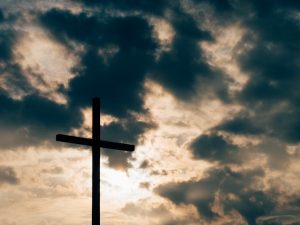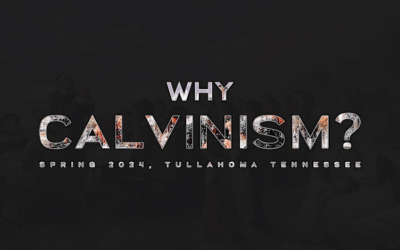“For there is one God, and one mediator also between God and men, the man Christ Jesus” 1 Timothy 2:5
Jesus is the most important person who has ever lived. He is God wrapped in flesh. The Savior of the World. The two natures of Christ, or the Hypostatic Union, is a fascinating aspect to our Christology. Not just in regard to understanding more of who Christ is, but also in regard to how it relates to our salvation.
Historical
The doctrines concerning the hypostatic union have been up for debate historically. Many people claim that these teachings did not come about until the 4th or 5th centuries. But this isn’t true. Though the Ecumenical Councils did clarify the language concerning the two natures of Christ, the doctrine is taught in the New Testament and in the first-century church.
Ignatius wrote in his Epistle to the Ephesians, “But our Physician is the only true God, the Father, and Begetter of the only-begotten Son. We have also as a Physician the Lord our God, Jesus the Christ, the only-begotten Son and Word, before time began, but who afterward became also man, of Mary the virgin. For “the Word was made flesh.” Being incorporeal, He was in a body; being impassible, He was in a passible body; being immortal, He was in a mortal body; being life, He became subject to corruption, that He might free our souls from death and corruption, and heal them, and might restore them to health, when they were diseased with ungodliness and wicked lusts.”
Two Natures
The word Nature could also be synonymous with the word Capacity. For example, we as believers had an “old nature” before we were saved, which was a capacity to live a life ruled by sin. Then we are given a “new nature” at salvation wherein we now have a capacity to not sin and live for Christ. The unbeliever does not have this new capacity. Moreover, the Christian does not possess both natures simultaneously.
Christ has two natures – at the same time. Jesus had a divine nature and a human nature. Jesus is fully and completely divine, and fully and completely human. He is fully God – all-knowing, all-powerful, etc. But He is also fully human. Jesus needed sleep, food, water, etc. Yet even in His human nature, Christ was without sin. He has existed eternally.
“In the beginning was the Word, and the Word was with God, and the Word was God.” John 1:1
“And the Word became flesh and dwelt among us, and we saw His glory, the glory as of the only begotten from the Father, full of grace and truth.” John 1:14
“For in Him all the fullness of the Deity dwells in bodily form,” Colossians 2:9
“Jesus said to them, ‘Truly, truly, I say to you, before Abraham was born I am.’” John 8:58
Who is Jesus?
Jesus is fully God and fully man. He is not half God and half Man. His divine nature did not diminish when He took on flesh. He was not just a man who had God dwelling inside Him. He is God wrapped in flesh. The second person of the Trinity. The two natures are not mixed together – they are completely distinct. That would be Eutychianism. These two natures are not melded into a new nature, indistinguishable from their previous state, or Monophysitism. These two natures are totally separate and distinct, but still united in the person of Christ.
“And He is the radiance of His glory and the exact representation of His nature, and upholds all things by the word of His power. When He had made purification of sins, He sat down at the right hand of the Majesty on high,” Hebrews 1:3
Jesus was completely sinless, yet he was tempted. He was prayed to and yet He prayed to the Father. He had all the glory He had when He was with the Father before the Creation of the World. Because each nature is still distinct, Jesus had to learn and grow up as a child and still He was all-knowing.
“Who committed no sin, nor was any deceit found in His mouth,” 1 Peter 2:22
“For we do not have a high priest who cannot sympathize with our weaknesses, but One who has been tempted in all things as we are, yet without sin.” Hebrews 4:15
“Then Jesus was led up by the Spirit into the wilderness to be tempted by the devil.” Matthew 4:1
“They went on stoning Stephen as he called on the Lord and said, ‘Lord Jesus, receive my spirit!’” Acts 7:59
“Now, Father, glorify Me together with Yourself, with the glory which I had with You before the world was.” John 17:5
“And Jesus kept increasing in wisdom and [a]stature, and in favor with God and men.” Luke 2:52
“He said to him the third time, “Simon, son of John, do you love Me?” Peter was grieved because He said to him the third time, “Do you love Me?” And he said to Him, “Lord, You know all things; You know that I love You.” Jesus said to him, “Tend My sheep.” John 21:17
The Hypostatic Union and Our Salvation
“For it is impossible for the blood of bulls and goats to take away sins…. Every priest stands daily ministering and offering time after time the same sacrifices, which can never take away sins,” Hebrews 10:4, 11
“That, in reference to your former manner of life, you lay aside the old self, which is being corrupted in accordance with the lusts of deceit, and that you be renewed in the spirit of your mind, and put on the new self, which in the likeness of God has been created in righteousness and holiness of the truth.” Ephesians 4:22-24
Because man is completely corrupt, he can not ever atone for his own sins. Man cannot ever hope to reach God on his own. Our sin completely separates us from a Holy and Just God. Our sin is treason against the Creator of the Universe and is punishable by an eternity in Hell. Because He is perfectly Just, He must punish sin. But Christ came to earth, our God wrapped in flesh, to be the sacrifice for His chosen people.
When Jesus was crucified, He bore our sins upon Himself. The “old nature” or “old man” was placed upon Him and also crucified. Christ rose from the dead in His perfected body. It is through this that the Christian can live free from the enslavement of the “old nature.” Our sins were nailed to the cross on Him. Jesus rose from the dead three days later, conquering death. The resurrection of Christ removes the penalty of our sins as well as the power of sin in our life. This conquering of death provides our justification before God. It is through our justification that we can become sanctified. When we are sanctified, we become more like Christ. Our becoming more like Christ pleases God. Christ’s resurrection also is our guarantee that we will be resurrected. This gives us courage and hope as we endure hardships.
“And He Himself bore our sins in His body on the cross, so that we might die to sin and live to righteousness; for by His wounds you were healed.” 1 Peter 2:24
“Who was declared the Son of God with power by the resurrection from the dead, according to the Spirit of holiness, Jesus Christ our Lord,” Romans 1:4
“I have been crucified with Christ; and it is no longer I who live, but Christ lives in me; and the life which I now live in the flesh I live by faith in the Son of God, who loved me and gave Himself up for me.” Galatians 2:20
“For if we have become united with Him in the likeness of His death, certainly we shall also be in the likeness of His resurrection, knowing this, that our old self was crucified with Him, in order that our body of sin might be done away with, so that we would no longer be slaves to sin; for he who has died is freed from sin. Now if we have died with Christ, we believe that we shall also live with Him, knowing that Christ, having been raised from the dead, is never to die again; death no longer is master over Him. For the death that He died, He died to sin once for all; but the life that He lives, He lives to God.” Romans 6:5-10
“And having been freed from sin, you became slaves of righteousness.” Romans 6:18









0 Comments